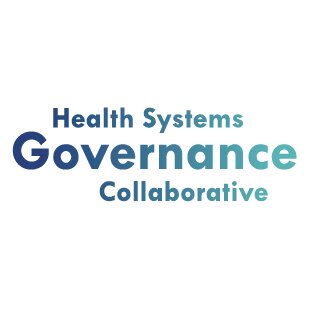New analysis for country teams: Perspectives of 52...
13 October 2017
By Godelieve van Heteren, Maryam Bigdeli and Gerard Schmets from the Health Systems Governance Collaborative

In the dynamic worlds of health systems strengthening there is no dearth of vision statements.
There is no lack of policy diagnoses outlining health systems’ ailments, no lack of expressions of interest in innovation, no lack of serious background studies pointing at health systems bottlenecks.
In the dynamic worlds of health systems strengthening, resources are not the main problem: most often there is enough money, sufficient knowledge and a plethora of declarations of good intentions.
So why - seen from the perspective of the real health status of real people - is progress so slow and terribly uneven? Why does mortality due to preventable diseases not diminish more rapidly? Why do we not see quality-of-care provision jump to the levels that could be? Why does access to good health and health care remain barred to large parts of the world’s population, despite the thousands of pledges to advance universal health coverage, and despite external aid for health increasing fourfold during the MDG era?
Of late, one of the favoured answers to such questions has become ‘lack of governance’. According to UHC2030’s ‘Healthy Systems for Universal Health Coverage – a Joint Vision for healthy Lives’, governance has moved to the top three of crosscutting factors, necessary to create better health (along with finance and service delivery). Or as Bob Fryatt et al. noted in a recent BMJ article: “Effective governance of the health sector is a critical foundation of improving health.”
Governance is not a new focus, far from it. But after being cornered in a silo building block for decades, it is making a loud comeback. A growing army of scholars, practitioners, policy experts and citizens’ representatives are reaffirming the importance of governance as an essential prerequisite for health systems to function and health to be promoted. A large number of new publications testify to its vital importance.
However, this recent resurgence of interest in governance does not automatically represent the long-awaited quantum leap in the painful global and local search to tackle the root causes of slow progress in health and health systems performance.
The risk remains that the current ‘governance rush’ will also get stuck in mere academic exercises or unproductive indulging in theoretical conceptualizations. Greater transparency, accountability, better management all sounds great, who could be against it?
However, the urgent operational appeal that radiates from the UHC agenda and reemerging governance debates is far, far tougher. Particularly those debates focusing on ‘actionable governance’ or the ways and means to actually change and improve health systems governance at all levels. In the new pleas for dialogue, collective action, or the demands to implicate public and private stakeholders in global health, a whole range of deep dilemmas and fierce contentions are implicated and are bound to surface.
In the new clamour for better partnerships to define common standards and evidence, or the many calls for boosting public access or citizens’ agency beyond the ritualistic evocation of ‘citizens’ voice’, confronting power relations is inevitable.
Thus, between ‘the general health systems governance debates’ and the urgently called-for ‘actionable governance agendas’ lies a hugely charged, complex arena which we need to enter and face together. To engage in ‘actionable governance’ in health systems at local and national levels means dealing with some deeply rooted systems of complicity that hinder rather than promote progress.
Engaging with ‘actionable governance’ in health systems cannot happen without starting to think about the missing links, which we now ignore, and the bold moves we should take but now refrain from. The Health Systems Governance Collaborative aims to be open to all those who wish to embark on the actionable governance venture together.
The Health Systems Governance Collaborative is a related initiative of UHC2030.
Write to us at: hsgovcol@who.int
Here are some ways to get involved with the Collaborative:
The Collaborative’s website will be launched in December 2017 – so when we go live you can sign up to the interactive platform to engage with other governance and health professionals.
Sign up to our newsletter to keep up-to-date with all our activities. hsgovcol@who.intFollow us on Twitter @governance_hs and join the discussions.Take part in online events such as webinars and flash consultations in two key areas:
1. Governance capacities at national and subnational level
2. Definitions, frames and measurements of governanceSpread the word about the Collaborative and invite other people to join in.
